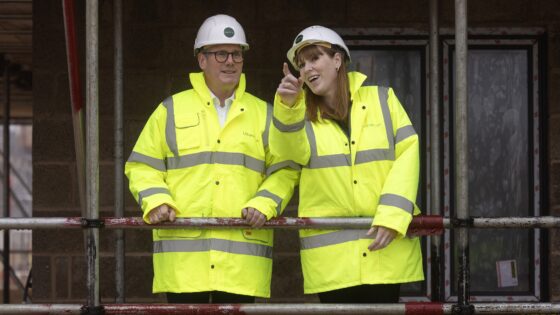Rayner stood down today (5 September) after admitting to underpaying stamp duty on a £800,000 flat purchase in Hove, East Sussex. She held the position of deputy to prime minister Keir Starmer and was housing secretary for 14 months.
In her resignation letter, the Labour MP said she took ‘full responsibility for this error’ and ‘deeply regret[s]’ not seeking additional specialist tax advice when purchasing the property, given her position in government.
Earlier today, an ethics report into Rayner’s conduct found that the housing secretary had ‘acted with integrity and with a dedicated and exemplary commitment to public service’ but that she had breached the ministerial code, the BBC reported.
The report’s author, Starmer’s independent advisor Laurie Magnus, said Rayner had encountered ‘complex’ tax issues when purchasing the property but that her actions ‘cannot be considered to have met the highest possible standards of proper conduct’.
The Telegraph was the first to claim that Rayner had not paid an estimated £40,000 in stamp duty when purchasing her Hove property. She reportedly removed her name from a Manchester property, the family home, months before. However, her disabled son still lived there, under a trust arrangement.
Under existing tax rules, parents of an under-18 child who is the beneficiary of a trust are still treated as the property’s owners for stamp duty purposes. Therefore, it is claimed the Hove flat had technically become her second home, and she should have paid the higher £70,000 stamp duty rate, and not the £30,000 for a sole residence.
Responding to Rayner’s resignation, Melanie Leech, chief executive of the British Property Federation, said: ‘We hope the next Secretary of State will continue Angela Rayner’s robust support for the builders, not the blockers, but will also take the opportunity to rethink policies which are damaging confidence, such as the surprise ban on upward-only rent reviews and the delayed homes penalty.
‘Most urgently, however, the new Secretary of State must work with the sector to tackle viability issues and ensure barriers to delivery are addressed. This includes a laser focus on resolving delays at the Building Safety Regulator, which are having a chilling effect on new development across the country.’
